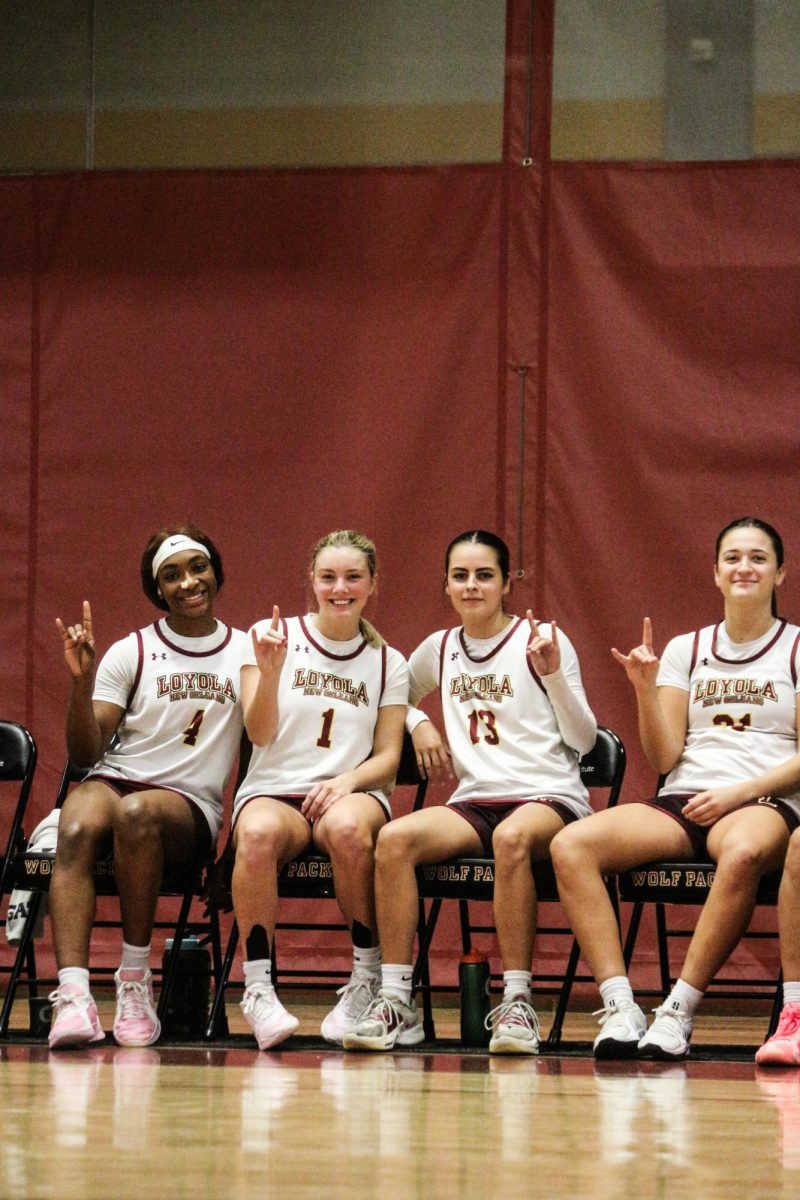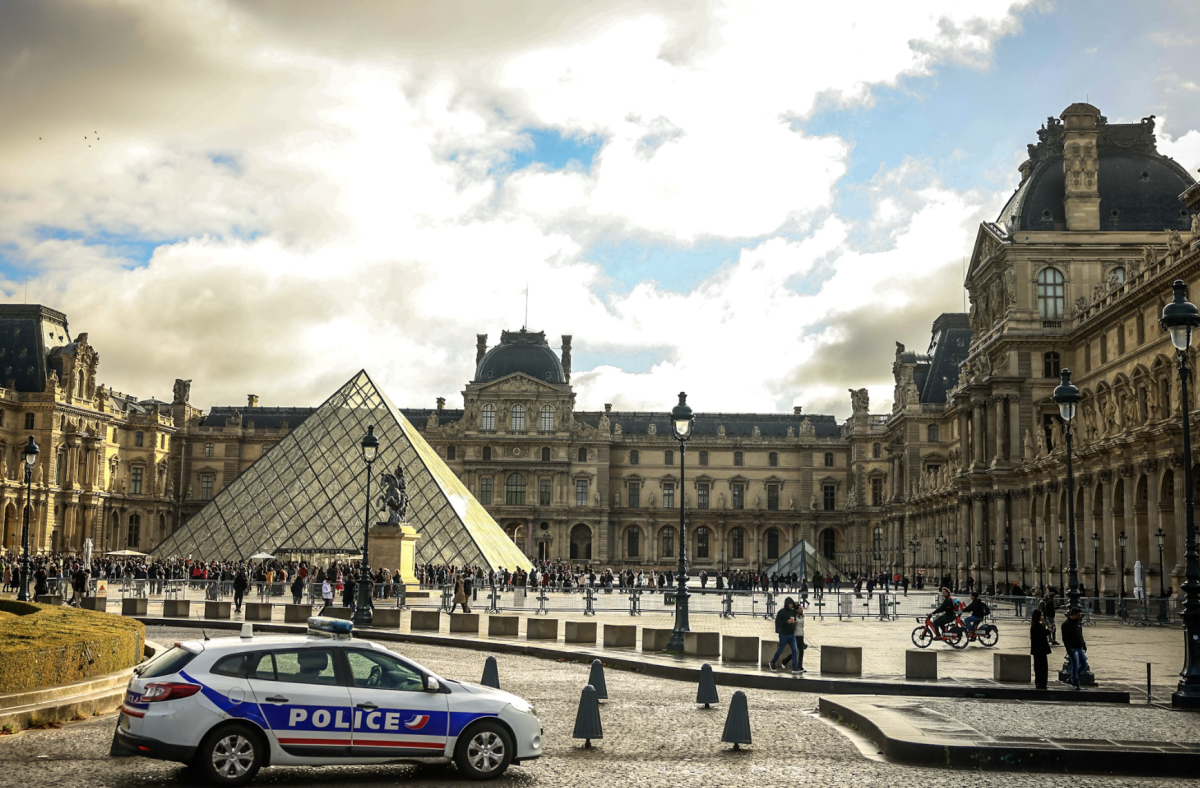For Sgt. Micah Hebert, Loyola has become a place of peace after years of war.
Hebert, biology sophomore, has already experienced more chaos and violence than most students will likely face in their lifetimes. He suffers from post-traumatic stress disorder, but Hebert says he’s not going to let it get the best of him. “My thing was that I wanted to be a Kennedy and not one of those hobos down at Perdido Street, just trying to get some change to get drunk, y’know?” Hebert said. “The Kennedys, they lost a brother, they experienced war, too, but they came back and they were productive members of society. That’s what I want to do, man. I want to be a doctor.”
continued on next page
Hebert received the Navy and Marine Corps Commendation Medal with Combat “Valor” Device for actions in Afghanistan as a Team Leader supporting the elite Marine 3rd Reconnaissance Battalion. In his citation, it says that Hebert’s “persistent actions in the face of accurate enemy fire not only continued to refine enemy locations, allowing friendly forces to more accurately engage, but also contributed to the physical security of the unit he was supporting by conducting ammunition re-supply and assisting in casualty evacuation.”
This citation however, leaves out the details that have stayed with Hebert almost two years later.
Hebert served in a special forces recon unit. “All we did was raid, capture, kill. If somebody was important enough to make our radar, we would go after them,” Hebert said. “We were the ones kicking in doors in the night.”
His most vivid combat memory from the war took place in Marja on Feb. 19, 2010. According to Hebert, the Taliban grew a majority of their opium there to fund the war and his unit was one of many called to invade. “Our orders are, no shit, break the will of the enemy,” Hebert said. “We’re literally like death becometh. Nobody had been here.”
After entering the area, Hebert’s unit set up inside a compound. Four soldiers, including Hebert, went onto the rooftop where there was only knee-high cover on one side. “We were on our stomachs, there’s four of us on the north side and three guys on the opposite rooftop, and everybody else is on the bottom,” Hebert said, “They’ve got UAV’s guys on laptops; you can see the feed. The technology is surreal, like way beyond what you would see playing video games.”
Hebert was talking with Cpl. Gregory Stultz when the fire began. “This RPK rip came through, which is a Russian-made machine gun and this was inches. Right, an inch by my ear. It flew by my ear and it came in and it hits Greg in his body armor,” Hebert said. “Immediately we have 20-plus long runs, rifles, machine guns, whatever shooting at us. And he got hit. He made this terrible face and said, ‘Ow, my back.’ He definitely suffered.”
The reality is that it could have just as easily been Hebert taking the bullet. “We had just swapped out,” Hebert said.
Hebert immediately made a move to save Stultz’s life. “I grabbed him by his collar and I dragged him. I thought I was staying really low, in my mind I was flat as a board, but in reality these guys are 200-plus pounds. He was a wrestling champion and then he’s got his body armor on. So in reality I’m kind of on my knees,” Hebert said. “So I thought I was super low, I’m getting shot at from the north, and then from the west they have this little wall so it’s kind of protecting my lower torso, but my upper torso is exposed.”
When Hebert returned to base two days later, he realized he’d been burned by a shell casing and had two holes in his armor from enemy fire.
“I dragged him from the roof under fire,” Hebert said. “It was just the craziest thing. It was like a cheesy action movie. I just never got hit.”
When Hebert finally got Stultz to safety, his wounded comrade’s body went limp. “And then it was like a “Private Ryan” kind of thing where you’re very focused,” Hebert said. “Immediately I ran over, threw myself down and started shooting. When I wasn’t shooting, I was getting information using some sensitive gear for intel, trying to figure out where people were, and when I wasn’t doing that I was spotting for the snipers and machine gunners.”
Soon, helicopters landed behind the compound, drawing heavy enemy fire. “Everybody wants to get the helicopter down,” Hebert said.
Machine gunners laid down suppressing fire in an attempt to protect the helicopters, but would have run out of ammunition if Hebert had not gone back onto the chopping block. “I got a bunch of ammo Pancho Villa style, just threw it over, and I gave the other guys on the rooftop a bunch of ammo,” Hebert said. “They were coming to the last foot and a half, which is like two or three seconds of shooting, and I was able to keep the guns going.”
The helicopter managed to escape, but Stultz died while onboard.
“It’s kind of surreal because for me that’s the strongest, my craziest moment of the war,” Hebert said. “Gregory Stultz was a good man.”
Hebert takes pride in having served his country and knowing that lives have been saved through his actions. “My job was mostly about saving lives, which I’m proud of. Not just to U.S. citizens. Doing a job where you can directly see that these people are alive because of my efforts.”
Once he returned stateside, Hebert ran for Louisiana state representative as an independent, taking an anti-war stance. “I wanted to cut legislative spending in half and I wanted to end the war in Afghanistan,” Hebert said. “It’s upsetting to me because we’re reliving Vietnam right now.”
According to Hebert he lost the election to Jerry Gisclair by an official tally of 5,407 to 3,844 after running his own grassroots campaign. “People just weren’t ready for radical change. I was just trying to fix a broken system,” Hebert said. “I’m a student, so I’d come to school, then I’d just drive home and do that. I did it for three and a half weeks, and I was really relieved even to have lost, just that it was over.”
Now Hebert is focusing on school and getting back to a normal life. He’s still haunted by the memories of war, but isn’t afraid to talk about his experience and help others who are going through the same thing. “War is a terrible thing; it’s inherently evil. I think it’s important to get out there that it’s nothing to be ashamed of,” Hebert said. “I have been on the brink of the heart of darkness, I’ve been on the edge. But the best thing to do is to be up front and forward.”
Being close to home and attending Loyola have helped Hebert work through PTSD, but so far Hebert is still struggling to adjust. “How do you get back to regular society? I don’t know. I’m still trying to figure it out.”







